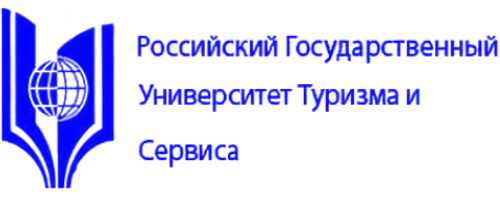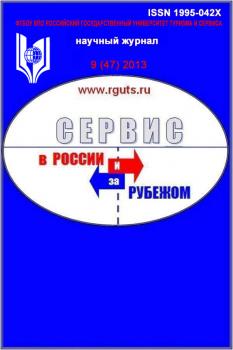Kazan, Russian Federation
Russian Federation
Kazan, Russian Federation
In the article the authors try to solve a number of interrelated tasks of service provision for the training process of sports teams. For this, firstly, it is necessary to determine the forms of optimal service support for the training process for teams of water sports. Secondly, it is necessary to assess the existing bases for conducting educational and sports fees in Russia and abroad, on the basis of the identified criteria for optimal service support of training and training fees for water sports teams. Thirdly, there is need to develop solutions for the effective use of the potential of the material and technical base for the XXVII Summer Universiade held in 2013 in Kazan and the 16th FINA World Championships in Water Sports in Kazan. The article discusses the problems of choosing training bases for con-ducting training camps for teams of water sports from the point of view of their service provision. The criteria for choosing the base are determined, and the importance of quality service support for the training process is considered. Using the example of water sports, the authors analyze the existing training bases in comparison with the potential of the Palace of Water Sports in Kazan, taking into account the requirements for service provision of international competitions established by FINA. The authors study the Russian sports bases and sports bases of the countries of the Union of Independent States, such as Armenia, Belarus, Georgia, Latvia, as well as sports bases of European countries: Bulgaria, Hungary, Poland, Finland, Czechia. Also, the article considers the aspects of the medical services provision on training areas. Based on experience of medical support of the training process in Norway, the authors give recommendations on the development of the Water Sports Palace in Kazan, as an object of the Universiade and FINA 2015, taking into account the requirements for service provision for international competitions.
service provision of the training camp, selection criteria for the training base, medical rehabilitation of athletes, provision of medical services
1. Afanas'ev O.E. Metodika ocenki turistsko-rekreacionnyh resursov zavisimyh stran i territoriy mira // Servis plus. 2016. T.10. №2. S. 54-63. DOI:https://doi.org/10.12737/19458.
2. Gismatullina D.V., Petrik L.S. K voprosu o povyshenii loyal'nosti potrebiteley uslug predpriyatiy industrii gostepriimstva // Integrirovannye kommunikacii v sporte i turizme: obrazovanie, tendencii, mezhdunarodnyy opyt. 2016. №1. S. 220-228.
3. Kubyshkin R.Yu. Sportivnye ob'ekty universiady kak sposob privlecheniya turistov // Nasledie krupnyh sportivnyh sobytiy kak faktor social'no-kul'turnogo i ekonomicheskogo razvitiya regiona: Mat. mezhdunar. nauch.-prakt. konf. Kazan': PGAFKSiT, 2013. S. 115-116.
4. Kuzikova L.Sh. XXVII Vsemirnaya Letnyaya Universiada 2013 goda kak faktor formirovaniya imidzha Respubliki Tatarstan i razvitiya turizma // Nasledie krupnyh sportivnyh sobytiy kak faktor social'no-kul'turnogo i ekonomicheskogo razvitiya regiona: Mat. mezhdunar. nauch.-prakt. konf. Kazan': PGAFKSiT, 2013. S. 117-119.
5. Pavlova A.V. K voprosu o pozitivnyh i negativnyh social'no-ekonomicheskih posled-stviyah realizacii proektov po provedeniyu krupnyh sportivnyh meropriyatiy // Nasledie krupnyh sportivnyh sobytiy kak faktor social'no-kul'turnogo i ekonomicheskogo razvitiya regiona: Mat. mezhdunar. nauch.-prakt. konf. Kazan': PGAFKSiT, 2013. S. 77-80.
6. Platonova N.A., Vapnyarskaya O.I. Metody provedeniya servisnogo audita na regional'nom urovne // Servis plus. 2016. T.10. №1. S. 3-15. DOI:https://doi.org/10.12737/11476.
7. Pelly F., O'Connor H., Denyer G., & et al. Catering for the Athletes Village at the Sydney 2000 Olympic Games: The Role of Sports Dietitians // International journal of sport nutrition and ex-ercise metabolism. 2009. Vol. 19. Iss. 4. Pr. 340-354. DOI:https://doi.org/10.1123/ijsnem.19.4.340.
8. Samuel R.D., Tenenbaum G., Bar-Mecher H.G. The Olympic Games as a career changeevent: Israeli athletes' and coaches' perceptions of London 2012 // Psychology of sport and exercise. 2016. Vol. 24. Pp. 38-47. DOI:https://doi.org/10.1016/j.psychsport.2016.01.003.
9. Clarsen B., Rønsen O., Myklebust G., Florenes T.W., Bahr R. The Oslo sports trauma research center questionnaire on health problems: A new approach to prospective monitoring of illness and injury in elite athletes // British Journal of Sports Medicine. 2014. №48(9). Pp. 754-760. DOI:https://doi.org/10.1136/bjsports-2012-092087.
10. Junge A., Engebretsen L., Alonso J.M., Renström P., Mountjoy M., Aubry M., Dvorak J. Injury surveillance in multi-sport events: The International Olympic Committee approach // British Journal of Sports Medicine. 2008. №42(6). Pp. 413-421. DOI:https://doi.org/10.1136/bjsm.2008.046631.
11. Mountjoy M., Junge A., Alonso J.M., Clarsen B., & et al. Consensus statement on the methodology of injury and illness surveillance in FINA (aquatic sports) // British Journal of Sports Med-icine. 2015. Vol. 50. Iss. 10. Pp. 590-596. DOI:https://doi.org/10.1136/bjsports-2015-095686.
12. Mountjoy M., Junge A., Alonso J.M., Engebretsen L., & et al. Sports injuries and illnesses in the 2009 FINA World Championships (Aquatics) // British Journal of Sports Medicine. 2010. №44(7). Pp. 522-527. DOI:https://doi.org/10.1136/bjsm.2010.071720.
13. Steffen K., Soligard T., Engebretsen L. Health protection of the Olympic athlete // British Journal of Sports Medicine. 2012. №46(7). Pp. 466-470. DOI:https://doi.org/10.1136/bjsports-2012-091168.





